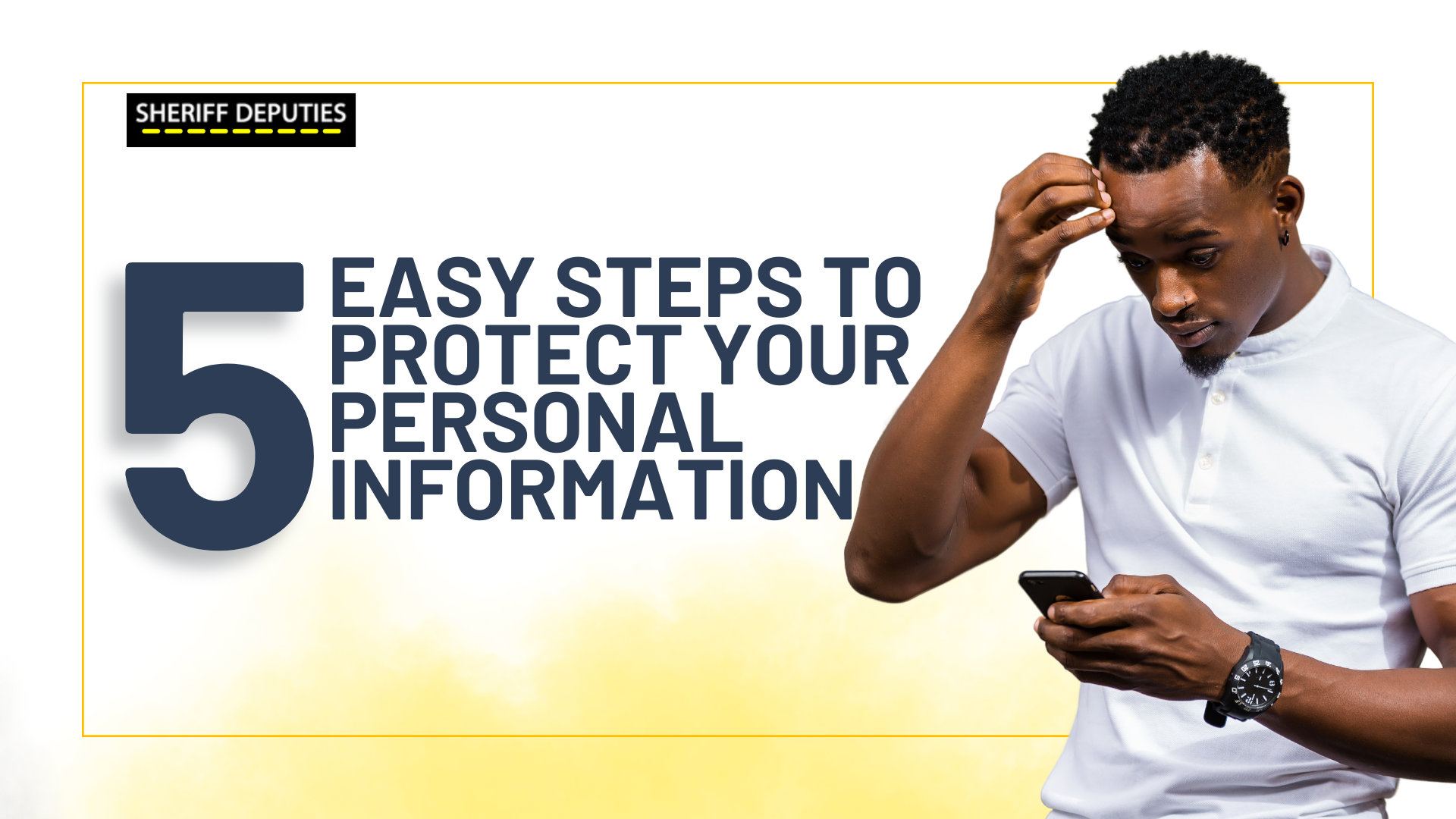Information is any useful knowledge about an individual, location, object or topic. As the popular adage goes, “Seek information for no knowledge is lost”.
It is quite common amongst end-users and security service contractors to overlook this key and essential aspect of security.
5 Easy Steps to Protect Your Personal Information
In this digital age of information the need to protect information is greater now more than ever before. Security is now redefined as the protection of lives, property and information.
1. Identify what information increases your vulnerability and exposure
This is the most important first step, and depending on your level of exposure and job, every single bit of information about you can be valuable, especially to criminals. Such as your addresses, your movement times and routines, location, passwords, travel plans, assets.
Valuable information may however not be limited to just you, information about family members, colleagues, your workplace etc may also be a target for criminals.
2. Restrict access to such information
This is the basic and universally applicable security measure. In this social media age, many people inadvertently attract negative attention by posting sensitive information online.
Ensure that your location is not shared in realtime to the public, also that sensitive pictures showing assets, family members, sensitive work environment, etc are not posted publicly. Limit access to digital information by pass-wording digital devices (phones, laptops) and even specific websites.
Avoid predictable passwords or use OTP’s (one time passcodes) for particularly sensitive websites. Ensure that user privacy agreements are up to date and that websites are secure and genuine before filling out forms online, it is an easy way to extract valuable information.
NEVER share sensitive information with unknown individuals over a phone call, sms or chat messenger.
3. Store and separate your digital keys
With the multiplicity of online work pages and websites it is safer to have multiple passwords, however this creates the risk of easily forgetting passwords for seldom visited pages. In this case passwords maybe encoded and stored in a vault.
Pin codes are a soft target for criminals, NEVER keep your ATM cards and its pin code together eg in your wallet. Do not share pin codes unless when absolutely necessary (eg if incapacitated).
4. Properly dispose your information
This is one of the often overlooked but easily achievable measures to protect your personal information. Whether it is written on paper or digital information on our used electronic device, just dumping them in the trash exposes to possible malicious activities if the information gets to wrong hands.
There are destructive measures ranging from physical destruction by shredding, incineration, to digital destruction by formatting/clearing, degaussing, etc
Ensure proper disposal of personal devices like personal computers, tablets, phones etc
5. Have a clear information protection policy
It is now clear that from personal to business to corporate level, information is a valuable asset that if not properly handled can expose to adverse effects such as fraud, kidnap, social media scandals, hacking, loss of customer confidence etc.
Therefore practicing these simple steps and keeping abreast of the current practices is the bare minimum to be done on an individual level. It is necessary for every organisation to have clear policy on handling of information. Engendering a culture of compliance by implementation at all levels.

